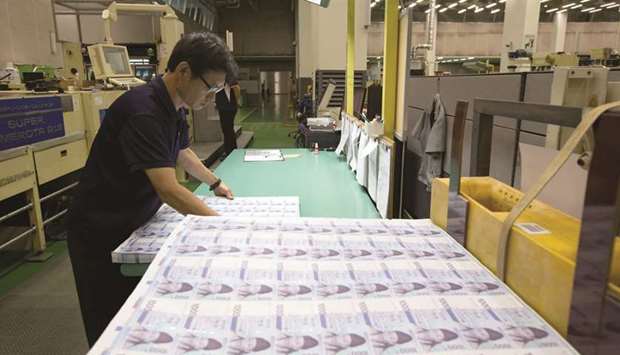Currencies in Asia have proven unexpectedly resilient as trade frictions between the world’s two-largest economies ratcheted higher in recent weeks.
The won, Malaysia’s ringgit, Thai baht and Taiwan dollar have all strengthened in the past month even as the US imposed tariffs on steel and aluminium imports from China and other countries, sparking Chinese retaliation.
“Markets are probably missing the point that if China trade slows down, that does have an impact on the rest of the region,” said Mitul Kotecha, a senior emerging-markets strategist at TD Securities in Singapore.
“Some of that’s not in the price and markets are probably a bit too sanguine about these risks at this stage given the fact that Asia is still a very export- dependent region.”
The won finally cracked after the US proposed imposing 25% tariffs on about $50bn of Chinese-made products on Tuesday.
China levied reciprocal tariffs on 106 US products including soybean, automobile and chemicals, CCTV reported, citing a decision of State Council.
The won has still strengthened 2% in the past month, leading regional gains, after South Korea signed a revised trade deal with the US, agreed not to engage in a competitive devaluation of its currency, and relations with North Korea improved. The currency weakened to 1,059.70 per dollar.
Correction due: Credit Agricole sees the won heading for a correction due to a widening interest-rate differential with the US, a risk-off tone in markets and lacklustre inflows into South Korean stocks, strategists Gary Yau and David Forrester wrote in a note on Tuesday.
The bank recommends buying the yen against the won as it thinks the latter has priced in too much good news.
Credit Suisse Group AG predicts the won will decline to 1,080 in three months amid the potential for further trade setbacks and as the Federal Reserve keeps raising US interest rates, supporting the dollar.
“There’s still significant scope for disappointments on both the trade and geopolitical fronts,” said Julian Wee, an investment strategist at Credit Suisse in Singapore. “The market also has some distance to go in terms of pricing in the four Fed hikes that we are expecting.”

